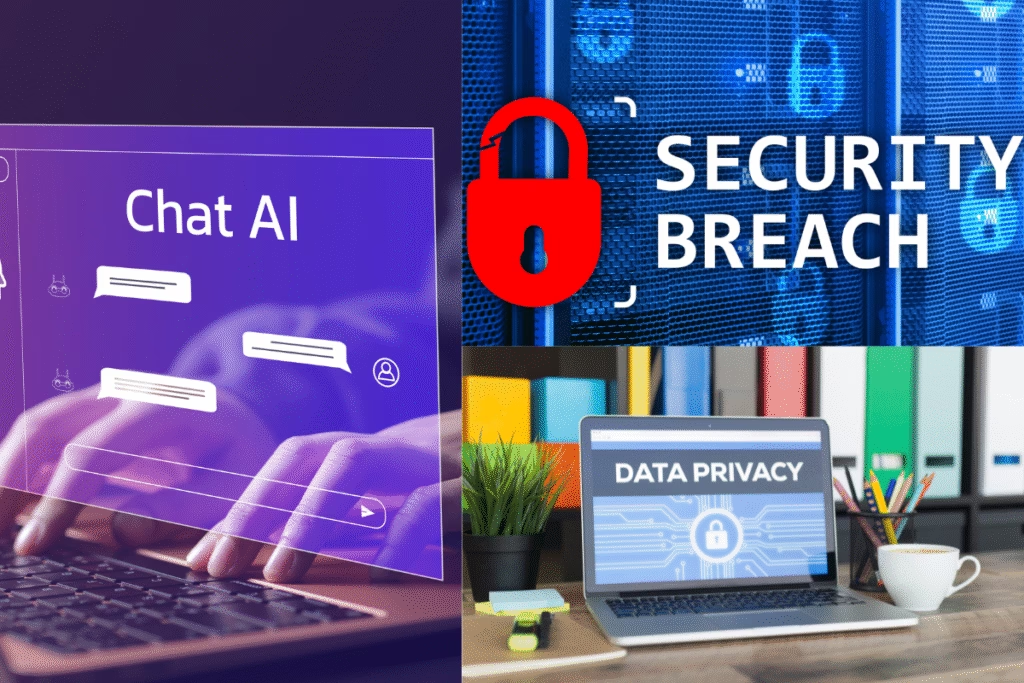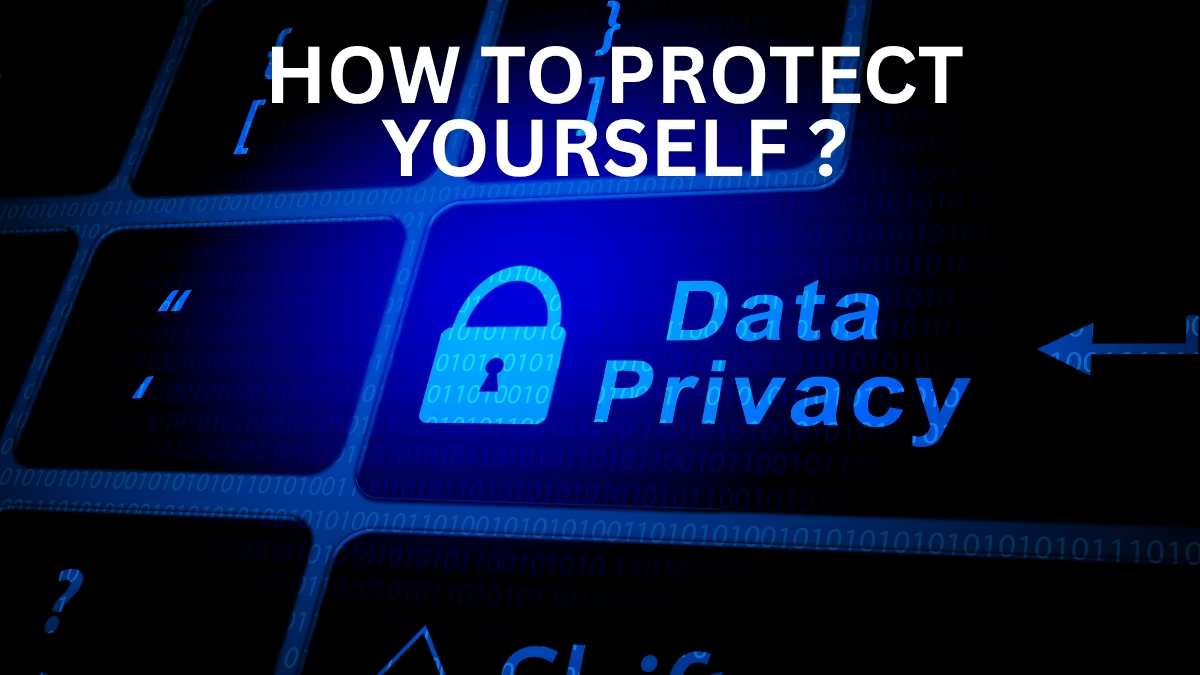Protect Yourself Using ChatGPT: Why Privacy Matters More Than Ever
Protect Yourself When Using ChatGPT and AI Tools : Millions of people trust ChatGPT and other AI chat tools daily for advice, work help, or personal conversations. But recent events revealed significant privacy concerns, such as ChatGPT conversations being exposed on Google Search. Protecting yourself when using these tools is critical—your personal, sensitive information deserves the highest safeguards.
This guide shows you how to protect yourself using ChatGPT and similar AI platforms, with easy-to-follow privacy tips that anyone can apply.

How To Protect Yourself When Using ChatGPT and AI Tools
1. Be Careful With Your Personal Details
Avoid sharing highly sensitive information—like passwords, government ID numbers, banking details, or private health information—in AI chats. Even if you trust the platform, privacy breaches or unintended indexing can expose your data.
2. Review and Use Sharing Settings Wisely
Many AI tools offer options to share or publish conversations. For example, ChatGPT once had a “make discoverable” checkbox which allowed publicly indexing chats on search engines — leading to privacy leaks.
Always check:
- Is your chat set to private or public?
- If sharing, do you understand who might see this conversation?
Disabling public discoverability is key to staying safe.
3. Understand AI Platforms’ Data Policies and Human Review Practices
AI services may store your chats for training or safety reviews, sometimes involving human moderators. Reading the privacy policy can help you understand:
- How long chats are stored
- Whether data is used to improve AI models
- If there’s an option to opt out or delete your data
Knowing these details empowers you to make informed choices.
4. Regularly Google Yourself and Unique Chat Phrases
To check for accidental exposure, search Google with your name or distinctive phrases from your chats. If anything shows up unexpectedly, act quickly to remove public links and request search engine removals.
5. Delete Public Share Links and Use Platform Removal Tools
Deleting a chat inside ChatGPT or any AI history doesn’t always remove shared public URLs or search results. You should:
- Manually delete public share links you created
- Use Google’s Search Removal tool if conversations appear in results
6. Choose AI Tools That Prioritize User Privacy
Some AI providers allow data deletion, user data export, or opt-out from training data usage. Choosing such platforms can limit privacy risks.
It’s Not Just ChatGPT: Other Real Examples of AI Privacy Breaches
When we think about privacy risks, it’s easy to focus on one tool, like ChatGPT. But the truth is, data leaks have occurred across many platforms. Here’s how recent incidents highlight the need for vigilance, no matter which AI tool you use:
1. Tea App Data Breach (2025)
The Tea app was designed as a safe space for women to share dating experiences and feedback—often discussing deeply personal issues. In July 2025, the platform accidentally left its internal databases unsecured. The result? Over 1.1 million private messages and user-uploaded images(including conversations about infidelity, health problems, phone numbers, and more) were exposed online, discoverable by anyone.
2. Meta AI Public Feed (2025)
Meta’s AI chatbot offered a feature where user prompts—sometimes including medical, legal, or highly personal topics—could end up in a public “Discover” feed. Many people had no idea their private questions were being shown to the world due to confusing opt-in settings and defaults, making their sensitive data visible to strangers.
3. Samsung Employee Data Leaked via ChatGPT (2023)
In 2023, Samsung employees used ChatGPT to troubleshoot issues and, by accident, pasted confidential source code and internal company information into their chats. Because these platforms retain data for model improvement, Samsung’s secrets were at risk of exposure—and the incident led to a company-wide ban on using public chatbots for internal work.
4. DeepSeek AI Data Leak (2025)
DeepSeek, another AI startup, left a gigantic database open on the internet due to misconfiguration. Security researchers found not just user chat history, but also sensitive back-end logs and API secrets—all accessible without a password. This incident proved that even “techy” companies can make basic mistakes that put user privacy at risk.
Why does this matter for you?
No platform is immune. Whether you’re using ChatGPT, the Tea app, Meta’s chatbots, or any new AI tool, keep in mind:
- Privacy settings can be confusing or poorly explained
- Data leaks are often unintentional (misconfigurations, poor defaults, or human error)
- Once exposed, chats can be copied, indexed, or misused forever—even if deleted later
Bottom line: Take charge of your data. Be thoughtful with what you share, and check privacy options before sending anything sensitive or personal.
Summary: Protect Yourself Using ChatGPT by Being Proactive
To maintain control over your privacy:
- Be cautious with what you share
- Understand sharing and privacy settings
- Monitor your digital footprint regularly
- Use privacy-conscious AI platforms
This approach ensures your conversations stay personal and secure, allowing you to benefit from AI tools without compromising your privacy.
Disclaimer:
The information provided in this blog is for educational and informational purposes only and should not be considered as professional legal, financial, or privacy advice. While every effort has been made to ensure accuracy, privacy practices and AI platform policies can change over time. Readers are encouraged to review privacy settings regularly and consult official sources or experts for specific concerns regarding their data security when using AI tools like ChatGPT.
Thank You for Reading!
Thank you for taking the time to read this guide on protecting your privacy while using ChatGPT and other AI platforms. Staying informed and proactive about your digital privacy is the best way to keep your sensitive conversations safe. If you found this article helpful, feel free to share it with others who might benefit, and stay tuned for more updates on online privacy and security. email : blogxstory@gmail.com .


2 thoughts on “How You Can Protect Yourself When Using ChatGPT and AI Tools: Essential Privacy Tips”
Comments are closed.